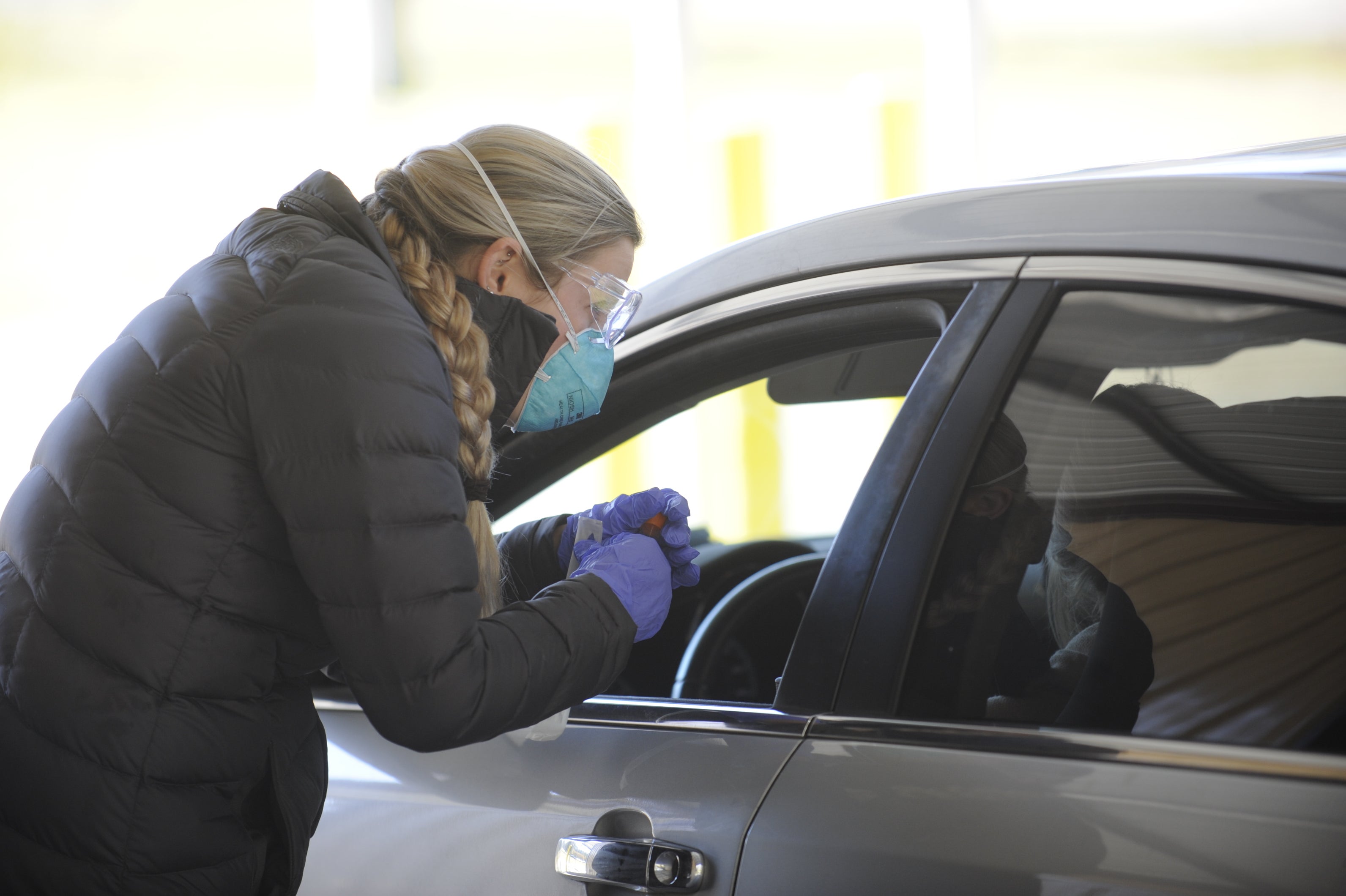COVID-19 vaccine coming soon
Published 5:38 pm Tuesday, December 8, 2020

- (Brandon Tester / Daily News)
|
Getting your Trinity Audio player ready...
|
The upward trend of Beaufort County’s COVID-19 metrics is concerning local health officials, but help is on the way.
Hospital systems throughout North Carolina are set to receive their first shipments of COVID-19 vaccines within the next couple of weeks. Beaufort County Health Director Jim Madson said he expects that Vidant Health and the Health Department will receive their vaccines the week of Dec. 20 — although he couldn’t speak definitively about Vidant.
The health department will receive Moderna’s vaccine from medical supply distributor McKesson.
“I don’t have a clue how many doses I’ll be getting right now,” Madson told the Beaufort County Commissioners on Monday. “I haven’t been told that, but I do expect to have some in house.
“I do ask everybody to be patient with the vaccination,” he added, “because I understand that in the first week it’s 85,000 doses that will be sent throughout North Carolina, and the following week 175,000 doses. That might sound like a lot until you start thinking about how many people need this vaccine.”
The state is using a four-phase vaccine distribution plan in order to make sure that frontline health care workers and medically vulnerable individuals are first in line to be immunized.
Phase 1 of vaccine dissemination will include an estimated 727,000-951,000 individuals statewide. Phase 1 is divided into several sub-phases. Phase 1A, according to the state’s vaccination plan, includes “healthcare workers and medical first responders who are at high risk of exposure based on work duties or who are vital to the initial COVID-19 vaccine distribution.”
Residents of long-term care facilities will also be among the first in line to receive vaccinations.
Next up will be essential workers such as educators and first responders. Madson said those workers are prioritized in the distribution plan because they “interface a lot with the public.”
In the final stage of Phase 1, adults who are designated as high-risk for COVID-19 — those who are 65 or older with two or more comorbidities — will be vaccinated. Comorbidities can include heart disease, obesity, high blood pressure, diabetes and many other conditions that can be diagnosed by a physician.
Madson estimated that the final stage of Phase 1 will begin sometime in January, and it could last between two to four weeks.
The groups that will receive vaccinations in Phase 2 include people in congregate living settings who are younger than 65 or have one or no chronic conditions; frontline workers at high or moderate risk of exposure who have one or no chronic conditions; healthcare workers not included in Phases 1A or 1B; adults with one chronic condition identified as having increased risk of COVID disease severity; and people who are 65 or older with one or no chronic conditions.
Phase 3 of the vaccination plan will include workers in industries “critical to the functioning of society,” as well as K-12 and college students.
Madson didn’t share an estimated time frame for Phase 3 and Phase 4.
Phase 4 will include anyone else who hasn’t been vaccinated by that time. Madson estimated that Phase 4 would begin around April.
“At that point, everybody should be able to get a vaccine,” he said. “Everybody should be able to get a vaccine at your medical clinic with your designated provider. The pharmacies will probably have it as well. And the health department will have it.”





